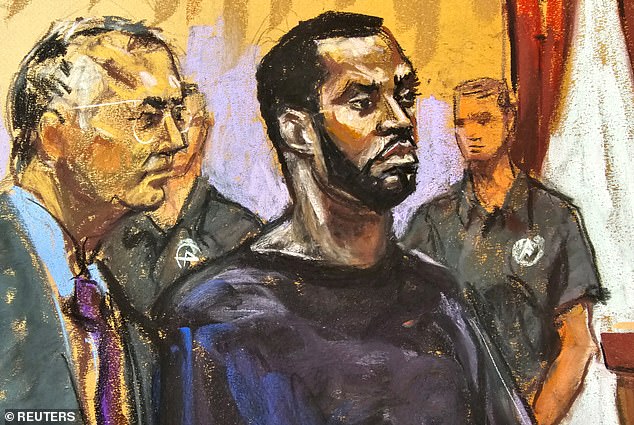New York prosecutors seeking to nail Diddy are using a strategy similar to one used to jail other high-profile sexual abusers, including R. Kelly and Keith Raniere.
The disgraced rap mogul was charged Tuesday with a range of crimes including sex trafficking and racketeering — the same charges that put R. Kelly and Raniere, the leader of the NXIVM cult, behind bars.
In particular, charges of extortion by the The New York Times as useful against powerful defendants as they allow prosecutors to build a case around an “enterprise” of accomplices going back many years.
Federal charges may allow prosecutors to pursue crimes dating beyond the state’s statute of limitations, and Diddy faces alleged crimes dating back to 2008, including kidnapping, arson, bribery and narcotics distribution.
Sean ‘Diddy’ Combs, seen in a courtroom sketch on Tuesday, faces a host of charges including sex trafficking and racketeering.

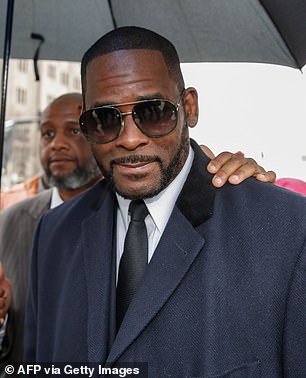
The charges against Diddy follow a similar pattern to those used by prosecutors to secure convictions for powerful sexual abusers Keith Raniere (left) and R. Kelly (right).
The indictment against Diddy unsealed this week alleged that federal raids at his Miami and Los Angeles mansions led to the discovery of more than 1,000 bottles of baby oil and lubricant.
The rapper is believed to have forced and manipulated his victims into participating in sexual shows that lasted several days, which he called “freak offs.”
Diddy’s associates allegedly supplied victims with drugs to keep them compliant and threatened anyone who refused, in claims similar to those made in a civil lawsuit filed by Diddy’s ex-girlfriend Cassie last year.
These allegations were instrumental in prosecutors bringing sex trafficking charges against the producer, and observers noted that authorities are increasingly stretching the law to fit their cases against powerful defendants.
In 2000, Congress passed enhanced federal sex trafficking charges as an intentional measure to crack down on prostitution rings and pimps, but the changing nature of the charge has seen it used more recently to ensnare individuals like Raniere.
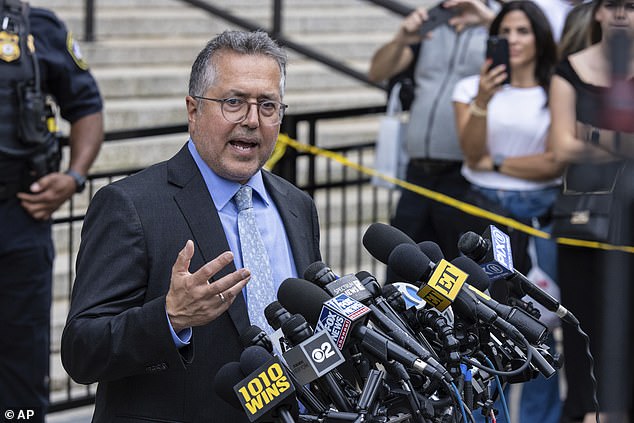
Diddy has hired the same lawyer, Marc Agnifilo (pictured), that Raniere used in his 2019 trial, who has previously challenged the government’s increasing use of federal sex trafficking charges to go after powerful defendants.
Notably, Diddy has hired the same attorney, Marc Agnifilo, who previously challenged the government’s increasing use of federal sex trafficking charges in Raniere’s 2019 trial that led to a 120-year sentence.
Raniere was the leader of the NXIVM cult, a self-help pyramid scheme that acted as a front for his various crimes, including sexual assault, sex trafficking, child pornography and forced labor.
At his trial, the cult leader’s legal team attempted to argue that federal sex trafficking charges were too exaggerated to fit his case — the same argument Agifilo made at Diddy’s bail hearing this week.
She claimed the alleged “encounters” were simply due to the way Diddy was “intimate” with people, and accused prosecutors of overreaching and “entering this man’s bedroom.”
“Is it sex trafficking? No, not if everyone wants to be there,” Agnifilo said at the hearing.
Raniere’s case was seen as a watershed moment in the expansion of the charges prosecutors could bring, as it was argued that Raniere’s accomplices benefited through an increase in their cult status by forcing their “slaves” to perform forced labor.

Raniere was the leader of the NXIVM cult, a self-help pyramid scheme that acted as a front for his various crimes, including sexual assault, sex trafficking, child pornography and forced labor.
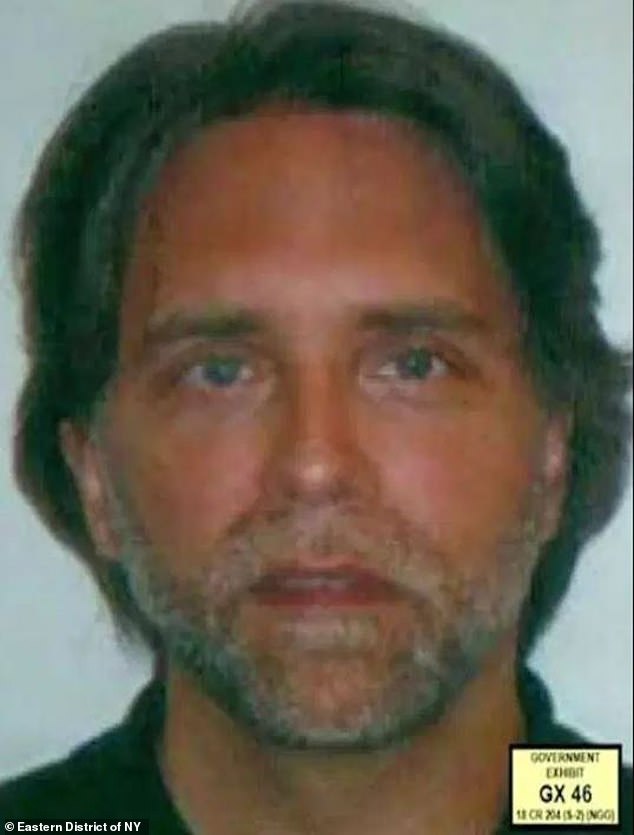
The cult leader was sentenced to 120 years in prison in a landmark trial that showcased the expansion of federal sex trafficking charges prosecutors could bring.
Another of the cult leader’s lawyers, Arthur Aidala, recalled that the case “was somewhat bastardized to suit the needs of prosecutors to incarcerate people they believe should be incarcerated.”
“Even if they weren’t violating the spirit of the law when it was enacted,” he told the New York Times.
Moira Penza, the prosecutor in the Raniere case, acknowledged that his trial was a successful test case to show authorities how they could take down a powerful defendant whose crimes occurred behind closed doors and with close confidants.
“These crimes often went unprosecuted because prosecutors were concerned about bringing ‘he said, she said’ cases, especially against powerful individuals,” he said.
“It was one of those first attempts after the #MeToo movement that showed that it could actually be done.”
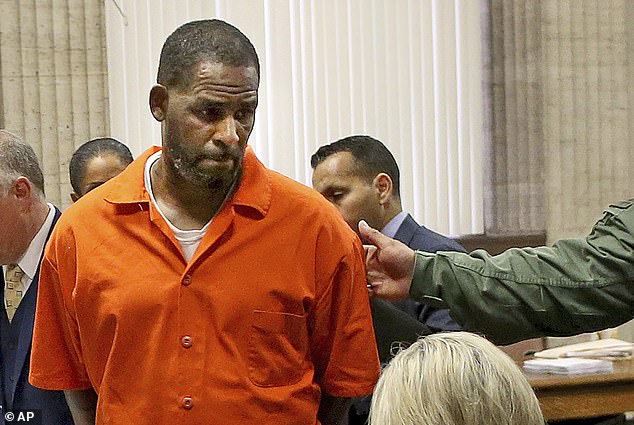
R. Kelly was convicted of historic crimes against underage girls through a legal trick that allowed prosecutors to pursue charges that had passed the statute of limitations — a tactic similar to the one used to charge Diddy this week.
The same could be said of the racketeering charges brought against Diddy, which largely mirror the case brought against another disgraced hip-hop icon, R. Kelly.
Kelly had faced years of allegations related to the abuse of underage girls, but it took the expansion of the RICO charges before prosecutors could finally bring a case against him.
Because some of Diddy’s alleged crimes occurred before the statute of limitations expired, prosecutors were able to bring charges against R. Kelly because his attacks on underage girls were “predicate acts” that were part of his “criminal enterprise,” which fit the federal charges.
R. Kelly’s ‘enterprise’ is believed to have included managers, drivers, bodyguards and personal assistants who helped him get away with decades of crimes against young girls.
Elizabeth Geddes, a former prosecutor who was involved in the case against R. Kelly, told the New York Times that convincing a jury that the powerful defendant used an “enterprise” to protect them for years is the key to winning these cases.
“A lot of times, the reason they’ve been able to evade justice is because they had this group looking out for them,” he said. “The law recognizes that individuals become more powerful when they’re backed by a group.
‘The Organized Crime Act exists to provide broad prosecutorial powers to bring such individuals to justice.’

